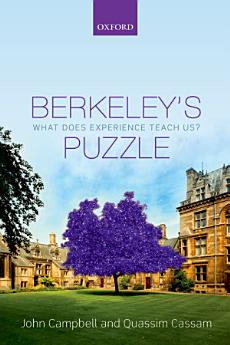Berkeley's Puzzle: What Does Experience Teach Us?
Aug 2014 · OUP Oxford
4.0star
1 reviewreport
Ebook
256
Pages
family_home
Eligible
info
reportRatings and reviews aren’t verified Learn More
About this ebook
Sensory experience seems to be the basis of our knowledge and conception of mind-independent things. The puzzle is to understand how that can be: even if the things we experience (apples, tables, trees, etc), are mind-independent how does our sensory experience of them enable us to conceive of them as mind-independent? George Berkeley thought that sensory experience can only provide us with the conception of mind-dependent things, things which cannot exist when they aren't being perceived. It's easy to dismiss Berkeley's conclusion but harder to see how to avoid it. In this book, John Campbell and Quassim Cassam propose very different solutions to Berkeley's Puzzle. For Campbell, sensory experience can be the basis of our knowledge of mind-independent things because it is a relation, more primitive than thought, between the perceiver and high-level objects and properties in the mind-independent world. Cassam opposes this 'relationalist' solution to the Puzzle and defends a 'representationalist' solution: sensory experience can give us the conception of mind-independent things because it represents its objects as mind-independent, but does so without presupposing concepts of mind-independent things. This book is written in the form of a debate between two rival approaches to understanding the relationship between concepts and sensory experience. Although Berkeley's Puzzle frames the debate, the questions addressed by Campbell and Cassam aren't just of historical interest. They are among the most fundamental questions in philosophy.
Ratings and reviews
4.0
1 review
About the author
Quassim Cassam is Professor of Philosophy at the University of Warwick. He was previously Knightbridge Professor of Philosophy at Cambridge, Professor of Philosophy at University College London, and also taught for many years at Oxford University. He is the author of Self and World (1997) and The Possibility of Knowledge (2007), both published by Oxford University Press. John Campbell is Slusser Professor of Philosophy at the University of California, Berkeley. Before that he was Wilde Professor of Philosophy at the University of Oxford. He is the author of Past, Space and Self (MIT, 1994) and Reference and Consciousness (OUP, 2002).
Rate this ebook
Tell us what you think.
Reading information
Smartphones and tablets
Install the Google Play Books app for Android and iPad/iPhone. It syncs automatically with your account and allows you to read online or offline wherever you are.
Laptops and computers
You can listen to audiobooks purchased on Google Play using your computer's web browser.
eReaders and other devices
To read on e-ink devices like Kobo eReaders, you'll need to download a file and transfer it to your device. Follow the detailed Help Center instructions to transfer the files to supported eReaders.








